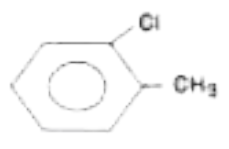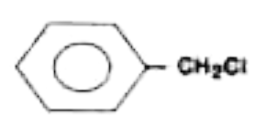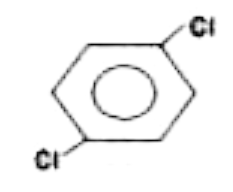1∘ alkyl halides preferably undergo which of the following mechanism ?
E1
E1cb
SN1
SN2
The correct Answer is:D
To determine which mechanisms primary alkyl halides preferably undergo, we need to analyze the characteristics of various mechanisms: E1, E1CB, SN1, and SN2.
1. Understanding Primary Alkyl Halides:
- Primary alkyl halides are compounds where the halogen is attached to a primary carbon (a carbon bonded to only one other carbon).
2. Analyzing the Mechanisms:
- E1 Mechanism:
- This mechanism involves the formation of a carbocation intermediate.
- Stability of carbocations is crucial; tertiary carbocations are more stable than secondary, which are more stable than primary.
- Therefore, primary alkyl halides do not favor the E1 mechanism.
3. E1CB Mechanism:
- In this mechanism, a carbanion is formed instead of a carbocation.
- Primary carbanions are relatively stable compared to secondary and tertiary.
- Thus, primary alkyl halides can undergo the E1CB mechanism.
4. SN1 Mechanism:
- Similar to E1, the SN1 mechanism also involves the formation of a carbocation.
- Again, the stability of the carbocation is key. Since primary carbocations are the least stable, primary alkyl halides do not favor the SN1 mechanism.
5. SN2 Mechanism:
- In this mechanism, the reaction occurs in a single step where the nucleophile attacks the carbon atom, displacing the leaving group.
- The rate of the SN2 reaction is inversely proportional to steric hindrance.
- Since primary alkyl halides have less steric hindrance, they are most favorable for the SN2 mechanism.
6. Conclusion:
- Based on the analysis, primary alkyl halides preferably undergo the E1CB and SN2 mechanisms.
Final Answer:
Primary alkyl halides preferably undergo the E1CB and SN2 mechanisms.
- Primary alkyl halides are compounds where the halogen is attached to a primary carbon (a carbon bonded to only one other carbon).
- E1 Mechanism:
- This mechanism involves the formation of a carbocation intermediate.
- Stability of carbocations is crucial; tertiary carbocations are more stable than secondary, which are more stable than primary.
- Therefore, primary alkyl halides do not favor the E1 mechanism.
- In this mechanism, a carbanion is formed instead of a carbocation.
- Primary carbanions are relatively stable compared to secondary and tertiary.
- Thus, primary alkyl halides can undergo the E1CB mechanism.
- Similar to E1, the SN1 mechanism also involves the formation of a carbocation.
- Again, the stability of the carbocation is key. Since primary carbocations are the least stable, primary alkyl halides do not favor the SN1 mechanism.
- In this mechanism, the reaction occurs in a single step where the nucleophile attacks the carbon atom, displacing the leaving group.
- The rate of the SN2 reaction is inversely proportional to steric hindrance.
- Since primary alkyl halides have less steric hindrance, they are most favorable for the SN2 mechanism.
- Based on the analysis, primary alkyl halides preferably undergo the E1CB and SN2 mechanisms.
Primary alkyl halides preferably undergo the E1CB and SN2 mechanisms.
Similar Questions
Knowledge Check
A primary alkyl halide would prefer to undergo :-
ASN1 reactionBSN2 reactionC∝-eliminationDracemisationWhich of the following is an aryl alkyl halide.
A B
B C
C DNone of these
DNone of theseAryl halide undergo :
AFittig reactionBUlmann reactionCWurtz reactionDGrignard reagent synthesis
A primary alkyl halide would prefer to undergo :-
View SolutionPrimary halides follow the mechanism:
View SolutionWhich of the following is a secondary alkyl halide ?
View Solution2∘ alkyl halides follow SN1 and SN2 both depending upon
View SolutionExcess aniline undergoes alkylation with methyl iodide to yield which of the following ?
View Solution
